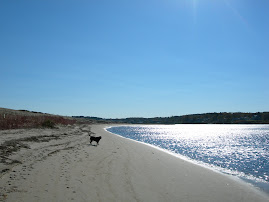So I read an article on Monday that I found both sad and disturbing, but not at all surprising. Apparently, soon-to-be-former President Bush is working hard to extinguish part of the Endangered Species Act.
Why work hard on solving, say, global warming, a bad economy, energy issues, antiquated health care, failing education system, rising unemployment, ballooning national debt, or the crumbling housing market when you can spend your time and intelligence—wait, I mean your time—on throwing the bald eagle under the bus.
What a legacy!
According to the Associated Press (AP), the Bush administration wants federal agencies to decide for themselves whether highways, dams, mines, and other construction projects might harm endangered animals and plants. New regulations, which don’t require the approval of Congress, would reduce the mandatory, independent reviews government scientists have been performing for 35 years.
Decide for themselves? You do the corrupt math.
The AP continued: If approved, the changes would represent the biggest overhaul of endangered species regulations since 1986 . . . The new regulations follow a pattern by the Bush administration not to seek input from its scientists. The regulations were drafted by lawyers . . . The changes would apply to any project a federal agency would fund, build or authorize that the agency itself determines is unlikely to harm endangered wildlife and their habitat.
Government wildlife experts currently participate in tens of thousands of such reviews each year . . . "If adopted, these changes would seriously weaken the safety net of habitat protections that we have relied upon to protect and recover endangered fish, wildlife, and plants for the past 35 years," said John Kostyack, executive director of the National Wildlife Federation’s Wildlife Conservation and Global Warming initiative.
Under current law, federal agencies must consult with experts at the Fish and Wildlife Service or the National Marine Fisheries Service to determine whether a project is likely to jeopardize any endangered species or to damage habitat, even if no harm seems likely. This initial review usually results in accommodations that better protect the 1,353 animals and plants in the U.S. listed as threatened or endangered and determines whether a more formal analysis is warranted.
I’m glad our current president is an endangered and soon-to-be-extinct species in terms of his days left in office. And I hope the next president understands that there's a delicate balance in nature, and we have to do all we can to go green—both the US government and its citizens—to get back in balance.
Question of the blog: Every article I read on the changes said they’d be subject to a 30-day public comment period before being finalized by the Interior Department, yet not one article included information on the way we the public can voice our concerns. Do you know how we can comment on the new rules within the 30-day public comment period?
Wednesday, August 13, 2008
How Do Endangered Species Quickly Become Extinct Species?
Subscribe to:
Post Comments (Atom)




No comments:
Post a Comment